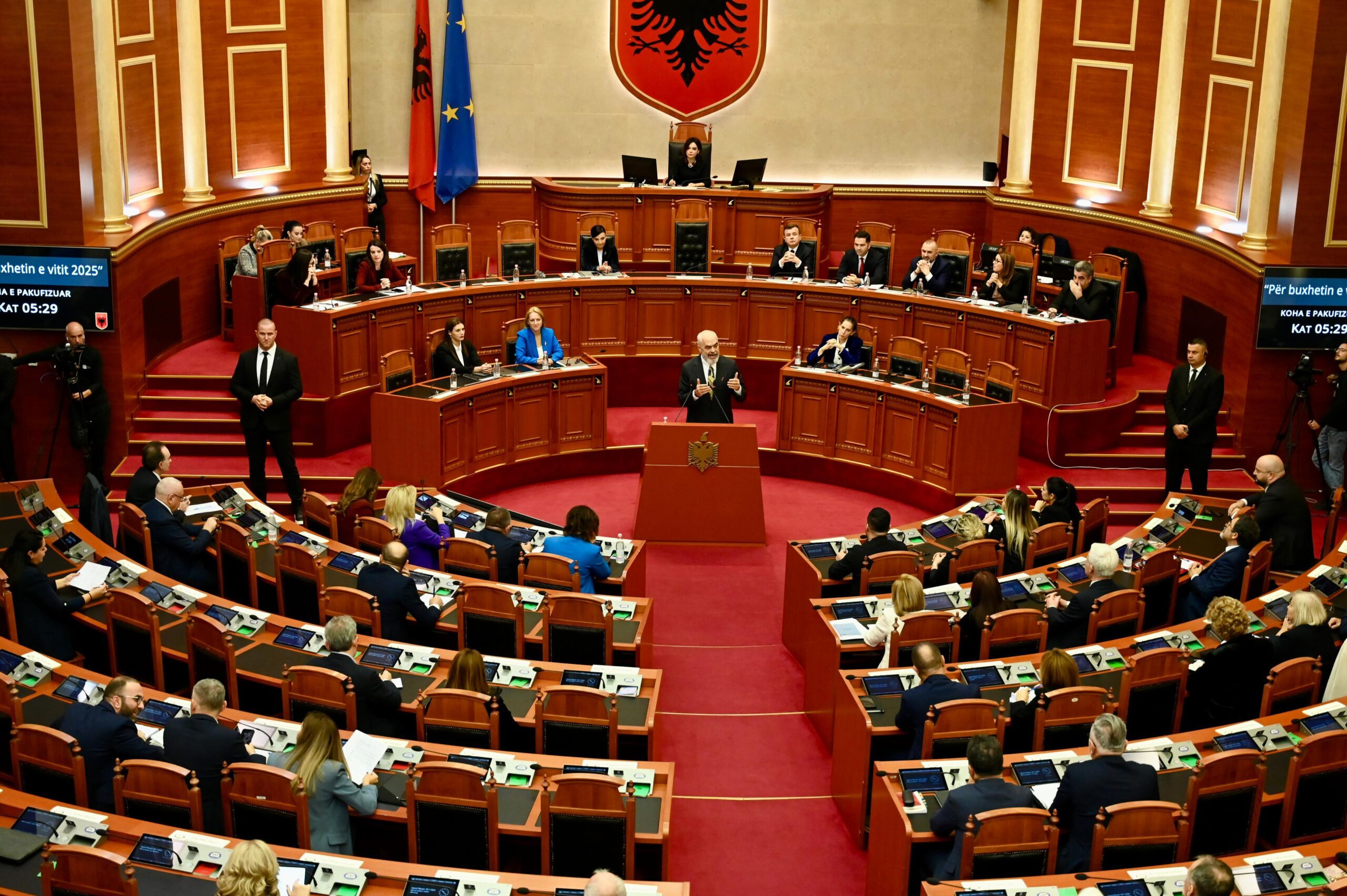Parliament debates 2025 budget: PM announces increased pension bonuses

The Albanian Parliament has launched a marathon debate on the upcoming year’s budget. Prime Minister Edi Rama presented the fiscal plan, highlighting a significant year-end increase in pension bonuses. Pensioners receiving under 200 euros monthly will have their bonuses tripled, while those with pensions over 200 euros will see their bonuses doubled. This initiative is set to benefit 511,000 pensioners, invalids, single mothers, and orphans, with an additional 210,000 pensioners receiving the doubled bonus.
Why is this important: Last year, the bonus was a uniform 50 euros for all pensioners. This year, it has increased to 100 euros for higher pension earners and 150 euros for lower earners. The total budget for these bonuses is 100 million euros, covering nearly 700,000 pensioners. The bonus is welcome news for pensioners, however it fails to provide the long term address to the pension problem that pensioners deserve. Reforming the pension scheme in order to provide decent pensions amidst demographic decline is the real challenge that will test the government now that the Prime Minister has pledged a significant reform.
Context: Rama also announced the establishment of a new bonus fund at the Bank of Albania, intended for distribution each spring. He emphasized a forthcoming pension reform plan tied to economic growth, aiming to increase pension incomes and ensure long-term financial stability. The Prime Minister highlighted reforms from 2014, which have resulted in 50% higher pensions for those retiring after 2014 compared to earlier retirees with the same work history.
What did the opposition say: The opposition, led by Sali Berisha (currently under house arrest for corruption), argued that the proposed bonuses and indexation are insufficient. In a virtual conference, Berisha outlined amendments for the 8.2 billion euro budget, which is double that of the last Democratic Party budget in 2013. Key Democratic proposals include:
- Establishing a minimum living wage of 200 euros for every citizen.
- Increasing pensions and multiplying the pension fund fivefold, from 16 million to 80 million euros.
- Tripling compensation for political prisoners, raising funds from 1.2 billion to 4.2 billion lekë.
- Raising the education budget by 1% of GDP annually until it reaches 5%.
- Boosting healthcare funding similarly by 1% of GDP each year.
- Increasing the reimbursable medicine budget by 50%, adding 60 million euros.
- Halting all budgetary payments to healthcare PPPs, except for dialysis.
- Implementing a 10% salary increase for public administration, excluding high salaries.
- Raising teachers’, professors’, doctors’, and nurses’ wages by 20%.
- Allocating 20 million euros for scientific research.
- Adding 130 million euros to unconditional transfers for municipalities.
- Providing 50 million euros in support for local production.
- Quadrupling subsidies for farmers, livestock breeders, and agro-industry to 120 million euros.
- Allocating 15 million euros for the Oncology Hospital, funded through a 10% tobacco excise tax.
- Halving operational government expenses, except for essential services and legal obligations.
- Tripling the budget for road maintenance.
Basha’s criticism: Berisha’s predecessor at the helm of DP, Lulzim Basha also criticized the government. He accused the administration of exploiting pensioners for electoral gains. In a Facebook video, Basha who has founded and leads a new party called the Democratic Party – Euro-Atlantic Democrats, claimed the economy has become a tool for a select few, leaving pensioners in poverty. He warned that the pension system is on the brink of collapse due to mass emigration and reduced contributions.
Basha’s alternative plan includes:
- A 20% minimum pension increase.
- Annual pension indexation at twice the inflation rate.
- A permanent 250,000-lekë bonus for low pensions.
- Full reimbursement of essential medications for pensioners.
What’s next: The government and opposition remain divided on how to secure the welfare of Albania’s pensioners, each presenting starkly different solutions. While the opposition has the luxury of making promises, however, unrealistic, the government is faced with the challenge of delivering on this issue that has suddenly jumped to center stage.


